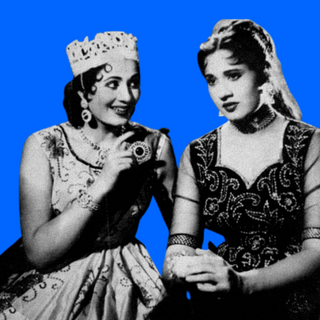
BTS Joining the Military Reignites Debates on Mandatory Enlistment
BTS’s decision raises questions about who really deserves to be exempted — and revives debates on conscription in a democracy.

Global K-Pop sensation BTS on Monday announced that its members will all enlist in their country’s military over the next couple of years. Big Hit Music, the management company and label that BTS is signed to, added in a statement that “the members of BTS are honoured to serve”, as reported by The Guardian. Their decision to formally announce their enlistment reignites fresh debates on mandatory military enlistment.
South Korea is technically still at war with its northern neighbour, and one way it intends to protect its frontiers is by imparting compulsory military training to male adults in the country. Conscription in South Korea has existed since 1957. Every healthy male adult under the age of 30 is required to mandatorily serve in the nation’s military service for a period between 18 and 21 months — criteria that BTS members fit. Many others are recruited for non-active military roles, such as community service, and serve slightly longer durations.
From time to time, the government is also known to offer certain exemptions — especially to athletes and classical musicians who have won international medals and laurels for the country. For instance, Tottenham Hotspurs’ Son Heung-Min was exempted from conscription last year, with the government highlighting Son’s contribution to winning the Gold Medal at the 2018 Asian games. However, even Son and others exempted like him do undergo a very brief military training.
For the last few years, there has been immense confusion and speculation among BTS members and their “army” of fans worldwide regarding their conscription status. Fans argued that BTS members — among the most well-known exporters of K-pop and South Korean culture — were eligible for exemption. They highlighted the massive revenue, global interest, and goodwill the band brought to South Korea, and demanded that they be left off of their mandatory enlistment on these grounds. There are two strands to the debate: one is about who gets to be exempt from service, and the other pertains to whether compulsory conscription is even democratic.
On one hand, while fans were calling for extending exemption from conscription to BTS members, on the other ministers and other government officials publicly stressed on the example BTS members could set by choosing to serve. For instance, earlier this month several publications reported South Korea’s commissioner of the military manpower administration Lee-ki-Sik telling MPs that it would be “desirable” for BTS members to carry out their conscription duties in order to ensure people’s faith in the fairness of the country’s military system. South Korea’s defence minister was also reported to express similar views. Government officials expressed that it was imperative for BTS to perform their duties to prevent accusations of favoritism against the administration.
Related on The Swaddle:
At one level, then, BTS’s decision to set about their enlistment duties and the rallying for their exemption raises questions about who really deserves to be exempted from mandatory duties. At another level, it also brings back debates around the validity of the very concept of conscription, especially in a democracy.
An editorial in Bangkok Post, a newspaper in Thailand — another country where conscription is in force — lists the several concerns with mandatory enlistment. The piece notes that “costly and unnecessary annual military conscription, which has existed by default for decades, needs a rethink. Many countries have abolished it.” Involuntary military service — like in BTS’s case — separates young males from their families against their will, enforces a pause on their careers, and often leaves them with severe psychological issues that they have to tackle on their own. Often, involuntary trainee recruits undergo violence, physical abuse, and torture in military camps, which takes a toll on their mental health. A conscription law ignores these economic and psychological consequences that a young male population has to face due to mandatory, involuntary, enlistment.
In multi-racial countries, conscription can also become a tool for exercising racism against racial minorities by the powerful majority. This was the case in the USA during the 1960s and 1970s, where the white government tried to draft black troops to fight their wars even as the former refused to grant the latter equal civil rights in their own country. Soon, anti-war resistance developed in black populations, who refused to be drafted stating that America’s problems were not theirs to fight for. The renowned black boxer Muhammad Ali reflected this sentiment when he stated, “I ain’t got no quarrel with them Viet Cong.” Ali, a world champion, was imprisoned by the US government for resisting the draft. At a time when the black population was already facing severe oppression in their home nation, the war and the draft became additional tools to extend the racial violence they were already subject to.
Conscription also faces feminist opposition. As Noah Berlatsky notes for The Atlantic, “one of the male patriarchal values that has been consistently criticized by feminists is war.” Feminists have critiqued war and the military as hierarchical institutions. They note that these institutions are male-dominated, and promote extreme forms of violence. In 2019, American activist Julie Mastrine expressed her strong reservations against introducing universal conscription — making it mandatory for both men and women to be drafted — in the USA in a statement. “I can’t imagine a more tragic loss of liberty than forcing a citizen, whether male or female, to fight in a war with which they may disagree. Equality is a moot point if personal choice and bodily autonomy must first be eliminated to achieve it,” she stated.
The twentieth-century American journalist and communist John Reed, in an open letter to Congress expressing dissent at a Draft Bill introduced in the USA in 1917, stated, “Conscription accustoms a whole nation to the thought of war. Men who have had their military training carry the belligerent impulse and the blind respect for authority back to their homes, until the whole nation is permeated with it. It is not only in military affairs that this psychology is fostered, but also in politics, in industry — even in education…”
As BTS members prepare themselves to enlist for their mandatory periods of military service, South Korea — and the rest of the world — needs to reconsider whether conscription is really necessary.
Amlan Sarkar is a staff writer at TheSwaddle. He writes about the intersection between pop culture and politics. You can reach him on Instagram @amlansarkr.
Related


Words Mean Things: ‘Decolonization’
